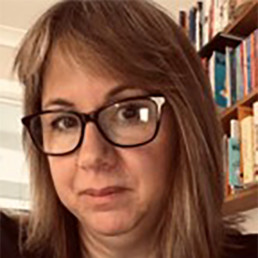
Written by Jennifer Harding-Richards
Jennifer is currently on secondment working as RVE and RSE adviser to schools across three local authorities as well as RVE adviser to the SACRE’s in each of the three authorities. She is passionate about education and especially keen on ensuring that social justice and equity are at the heart of all RVE and RSE curriculum planning, development and pedagogy within the Curriculum for Wales. She is the RE Hubs lead for Wales and a member of the steering committee for the Welsh Jewish Heritage Centre. She has previously worked as a freelance educator for the Holocaust Education Trust and has an MA in World Religions.
According to a recent report (ref 1), there were three times the numbers of antisemitic incidents reported across Wales in 2023, compared with 2022. The incidents which included threats, abusive behaviour and assault, represent a rise of 338%.
Wales is the first, and so far, the only home nation to have made the teaching of Black, Asian and Minority Ethnic histories a mandatory element of their curriculum and are committed to being an anti-racist nation by 2030. The anti-racist action plan (ref 2) includes the vision, values, purpose and strategies needed to support this and understandably, education has a large role to play.
The Curriculum for Wales, introduced in 2022, empowers individual schools to craft and cultivate their own unique curriculum. The aim of each school’s curriculum is to nurture students who are:
- ambitious, capable learners, ready to learn throughout their lives
- enterprising, creative contributors, ready to play a full part in life and work
- ethical, informed citizens of Wales and the world
- healthy, confident individuals, ready to lead fulfilling lives as valued members of society.
As we work towards an anti-racist nation, we are reminded about the power of education. Nelson Mandela’s infamous quote ‘education is the most powerful weapon with which you can change the world’ really resonates with the vision that we have in Wales. We know that far-right philosophies and beliefs are infiltrating mainstream culture, and our children are intoxicated with the images, speeches and behaviour of those that preach such ideologies. As educators, we have the responsibility to counteract such narratives and use our privileged position as curriculum designers and teachers to support our learners to become ethical and informed citizens, able to not only take their place within our diverse society, but to contribute and make positive change.
Wales has a rich, diverse and multi-cultural history. We have a rich legacy of inclusive education as well as a welcoming acceptance for the many diverse cultures and followers of faith that have made Wales their home. The story is told of how some of the first Jews in Wales, arriving in Merthyr Tydfil in the eighteenth century, peered through the windows of some local homes, and on seeing a Bible in every one, decided that this was a place where they could stay and be welcomed.
Using Welsh Jewish stories and voices within our school curricula, whilst obviously not eradicating antisemitism in its entirety, will help develop a generation of young people who are able to humanise and personalise others, avoiding stereotypes and challenge the narrative of the media and those with the loudest voices. We want our children to become ethical and informed citizens, capable of independent thought and able to critically engage with the toxicity of hate that surrounds us on a daily basis.
There are so many Welsh Jewish stories that deserve to be told, individuals who have helped shape our society and made a positive impact on others. Leo Abse, for example, a social reformer, and Labour MP for 30 years. He was influential in the shift in laws and norms towards the acceptance of homosexuality and divorce. We want our pupils to engage with discussion around his ideals and values and how they have changed Wales for the better. His aunt, Lily Tobias, had a multilingual childhood in Ystalyfera which fostered in her a political activism, a sense of social justice and a determination to try and change the world. Her legacy cannot ever be underestimated. Kate Bosse Griffiths, escaped Nazi Germany and along with her husband, became a founding member of ‘Cylch Cadwgan’, an organisation that welcomed and celebrated writers, poets and pacifists. Her own writing focused on her feminist ideals and sense of spirituality. She made a huge difference to those around her.
In working towards an anti-racist Wales, in celebrating and recognising cynefin (ref 3) and using our subsidiarity and autonomy to design our own bespoke curriculum for our learners, we have a real opportunity to use stories and voices to challenge stereotypes, antisemitic tropes and narratives of hate.
References
‘We’ve not seen this since the Holocaust’: Antisemitism in Wales up by 300% after outbreak of war:
Anti-racist Wales Action Plan
https://www.gov.wales/anti-racist-wales-action-plan-contents
‘cynefin’
A Welsh word for which there is no direct translation. It refers to the ideas of habitat and a sense of rootedness, It describes the environment in which one is naturally acclimatised.

